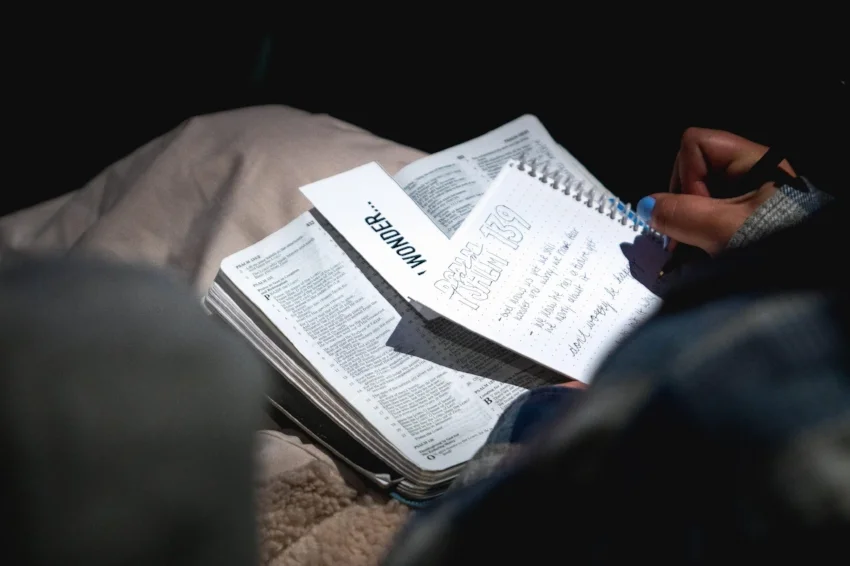How Much Sleep Do You Need to Study Effectively?
We remember what it was like. The weekend study groups, the late-night library visits, the early-morning cramming sessions. Suddenly after a semester’s worth of cruising along, our exams would be upon us. And we would need to study. Fast.
With this sudden realisation, panic would set in. And a fierce determination to study that we’d never had before. And our sleep would suffer as a result.
Looking back, it’s easy to see how foolish we were. Because depriving ourselves of sleep wasn’t doing our grades any favours!
So how do we prevent our kids from making the same mistakes?
Well, we need to start by informing ourselves. We need to realise that getting enough sleep should be a priority in our lives, no matter what age we are. Why? Well, because staying rested makes us more productive, more creative, happier and healthier people. Whereas being sleep deprived can lead to us being grumpy, irritable zombies who are barely capable of remembering our own name, let alone that law about gravity.
To study effectively, start by going to sleep
It may sound counter-intuitive, but it’s true. Because most teenagers nowadays are sleep-deprived, getting well under their recommended 8–10 hours per night. And even though adults need one hour less (7–9), most of us are under this level, too.
But by getting enough sleep every night, your kids are spending more time in the deep stages of sleep – NREM and REM. Cognitive function is improved during this time, in particular memory consolidation and problem-solving, so it’s pretty vital in terms of study.
And although many scientists have disputed the myth that we can learn new things while we sleep, it can help us to improve in certain areas, like linguistic or musical skills. So studying for that French oral or Music practical can be best enjoyed in the Land of Nod. Which is almost as exciting as the fact that gaming is healthy for the brain. Almost.
Turn in so you don’t burn out
By getting to bed at a reasonable hour every night, say 10pm, your kids can wake up rested and refreshed by 6 or 7am. Time for last-minute cramming if they need it, but without the exhaustion of having stayed up until 3am. They’ll still have had their minimum of 8 hours sleep; and their capacity to study the next morning will prove this. It’s all about balance, after all… and maintaining this equilibrium can help your kids to perform consistently well for longer, rather than burning out after a week of late nights.
What’s more, they’ll be able to perform even in the face of challenges. Because although a person who’s had 5 hours sleep can perform the same basic tasks as someone who’s had 8 can, their ability will be called into question as soon as an obstacle arises. So any tricky questions on the exam paper are likely to stump a sleep-deprived brain.
How to help your kids get a better sleep:
No matter what age we are, an evening routine can be the difference between a great sleep and a night of fighting with the bedsheets. So set a clear bedtime every night, get the whole family to ‘power down’ (ie by switching off TVs, laptops and phones an hour before this) and start the process of settling down. Encourage your kids to close the books and to go for a short walk/have a bath/listen to music or read a non-study-related book instead.
This will help their minds to calm down after being worked into a study frenzy all day, making it much easier to drift off when they need to.
You can also help them get a better sleep by watching what they eat/drink. Cutting out sugar and caffeine as much as possible, and especially later in the day, is an important one for obvious reasons. But you can also encourage your kids to try sleep-promoting foods, like almonds or bananas, for an evening snack. Both of these contain magnesium and potassium, which help to relax both body and mind, even during a stressful time like exams week.
If your kids are still struggling with sleep, and it’s affecting their performance at school, head to the Sleep Advisor for more tips. Whether they end up changing their sleeping position, or getting into meditation, it might just give them the information they need for a sounder sleep… and better grades!
Hopefully these tips will help your kids to sleep better, and study more effectively, from now on. Meaning happier families all around. :)
Bio:
Sarah’s a 30-something mom of two who lives in California. When she’s not writing about sleep or hosting imaginary tea parties, she’s saluting the sun in morning beach yoga classes or going to outdoor movie shows with friends.

